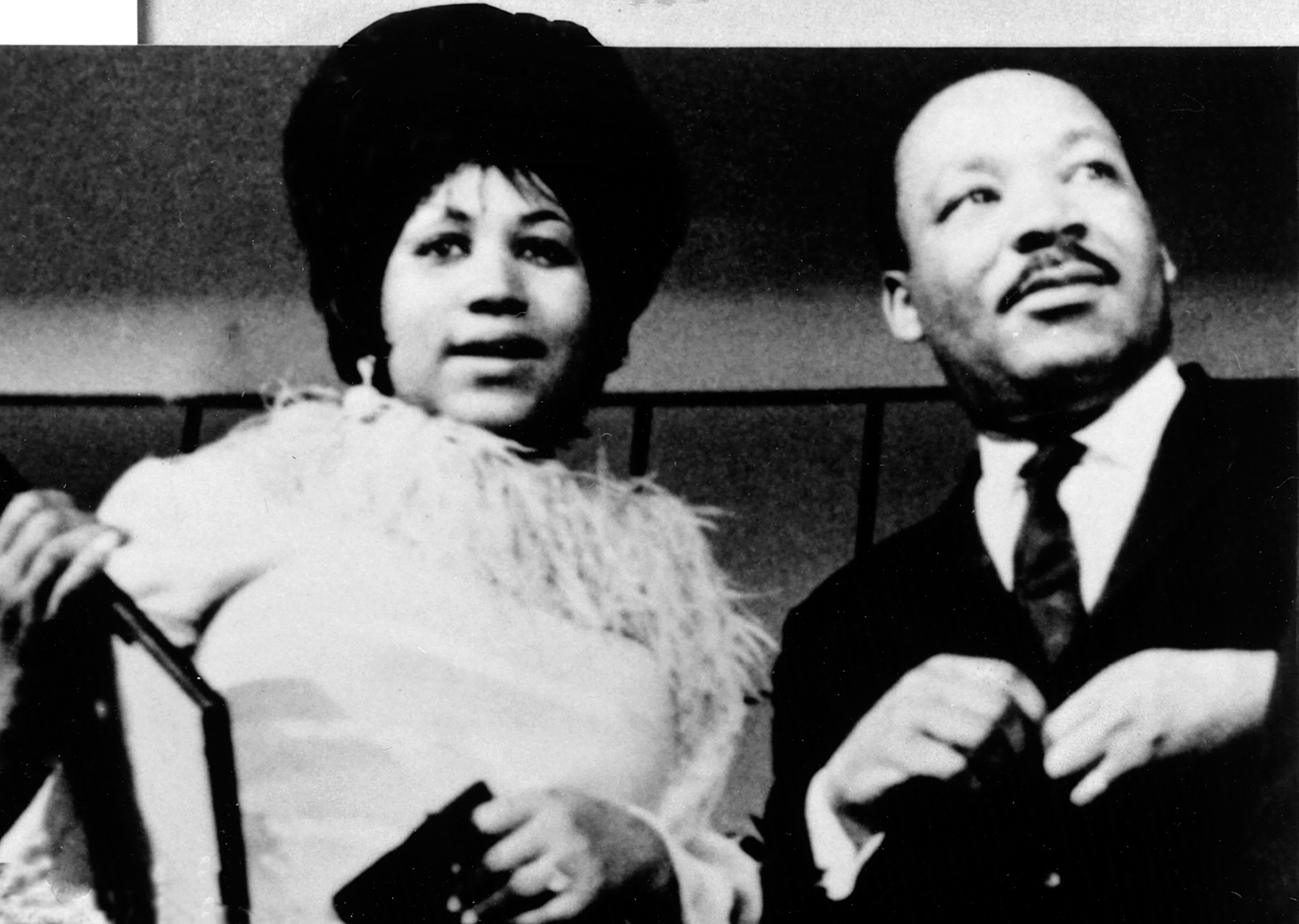Aretha Franklin: The Queen of Soul and Civil Rights Icon
Aretha Franklin, renowned as the "Queen of Soul," was an exceptional artist whose contributions to music, civil rights, and American culture were profound. This essay critically examines the complexities of Franklin's life and work, exploring her dual roles as a musical icon and a powerful advocate for social justice.
The Genesis of a Musical Legacy
Aretha Franklin's vocal prowess was unparalleled. Born into a musical family, she began singing in church at an early age, honing her skills in the gospel tradition. Her soulful voice, with its remarkable range and emotive depth, captivated audiences worldwide.
Franklin's journey to stardom began in the 1950s. She signed with Columbia Records in 1960, but it was not until her transition to Atlantic Records in 1967 that she achieved commercial success. Her albums "(You Make Me Feel Like) A Natural Woman" (1968) and "Spirit in the Dark" (1970) cemented her status as a musical icon.
Franklin's music transcended genre boundaries, blending soul, R&B, gospel, and pop. Her signature songs, such as "Respect" (1967) and "Chain of Fools" (1968), became anthems of empowerment and liberation.
The Soul of Civil Rights
Beyond her musical achievements, Aretha Franklin played a pivotal role in the Civil Rights Movement. Her powerful voice became a symbol of the struggle for racial equality and social justice.
Franklin used her platform to advocate for desegregation and the fight against racial discrimination. She performed at rallies, fundraisers, and boycotts, inspiring countless Americans to join the cause.
Franklin's most iconic civil rights anthem was "Respect," a song that became a rallying cry for both racial equality and women's empowerment. The song's message of demanding respect resonated deeply with audiences across the country, transcending racial and gender boundaries.
Critically Analyzing the Perspectives
Franklin's legacy as a musical icon and civil rights activist has been extensively studied and debated. Scholars have recognized her immense artistic talent and influence, while also acknowledging the complexities of her personal life and the challenges she faced.
Some critics have argued that Franklin's political activism overshadowed her musical contributions, while others have questioned her motives and consistency in supporting social justice causes. However, the consensus among scholars is that Franklin's impact on both music and civil rights was profound.
Franklin's personal life was also subject to scrutiny. Her marriages, financial struggles, and health challenges have been documented and analyzed. These experiences, however, added depth to her music and her activism, as she drew upon them to connect with her audience on a deeply emotional level.
Engagements with Scholarly Research and Sources
This essay draws upon a wide range of sources to critically examine Aretha Franklin's legacy. Music historians and biographers, such as David Ritz and Mark Bego, provide detailed accounts of her musical career and the evolution of her sound.
Civil rights historians, including Clayborne Carson and Adam Fairclough, explore Franklin's role in the movement and the impact of her music on the struggle for racial equality.
News articles, documentaries, and interviews with Franklin herself and her contemporaries offer additional insights into her personal life, her artistic process, and her activism.
Conclusion: The Enduring Legacy of the Queen
Aretha Franklin left an indelible mark on the worlds of music and civil rights. As the Queen of Soul, she captivated audiences with her unparalleled vocal abilities and innovative musical style. As a civil rights icon, she used her voice to amplify the struggle for racial equality and empowerment.
Franklin's legacy extends beyond her lifetime. Her music continues to inspire generations of artists and listeners, while her activism serves as a reminder of the power of art and protest to bring about positive change.
The complexities of Aretha Franklin's life and work reveal the multifaceted nature of American history and culture. Her story is a testament to the resilience, creativity, and determination of those who have shaped our society. By examining her legacy, we gain a deeper understanding of the intertwined histories of music, race, and social justice in the United States.
Airi Suzuki: From Idol To Solo Singer Extraordinaire
Charlize Theron: The Actress Who Masters Action And Drama
Emma Roberts’ Role In American Horror Story: A Star On The Rise



